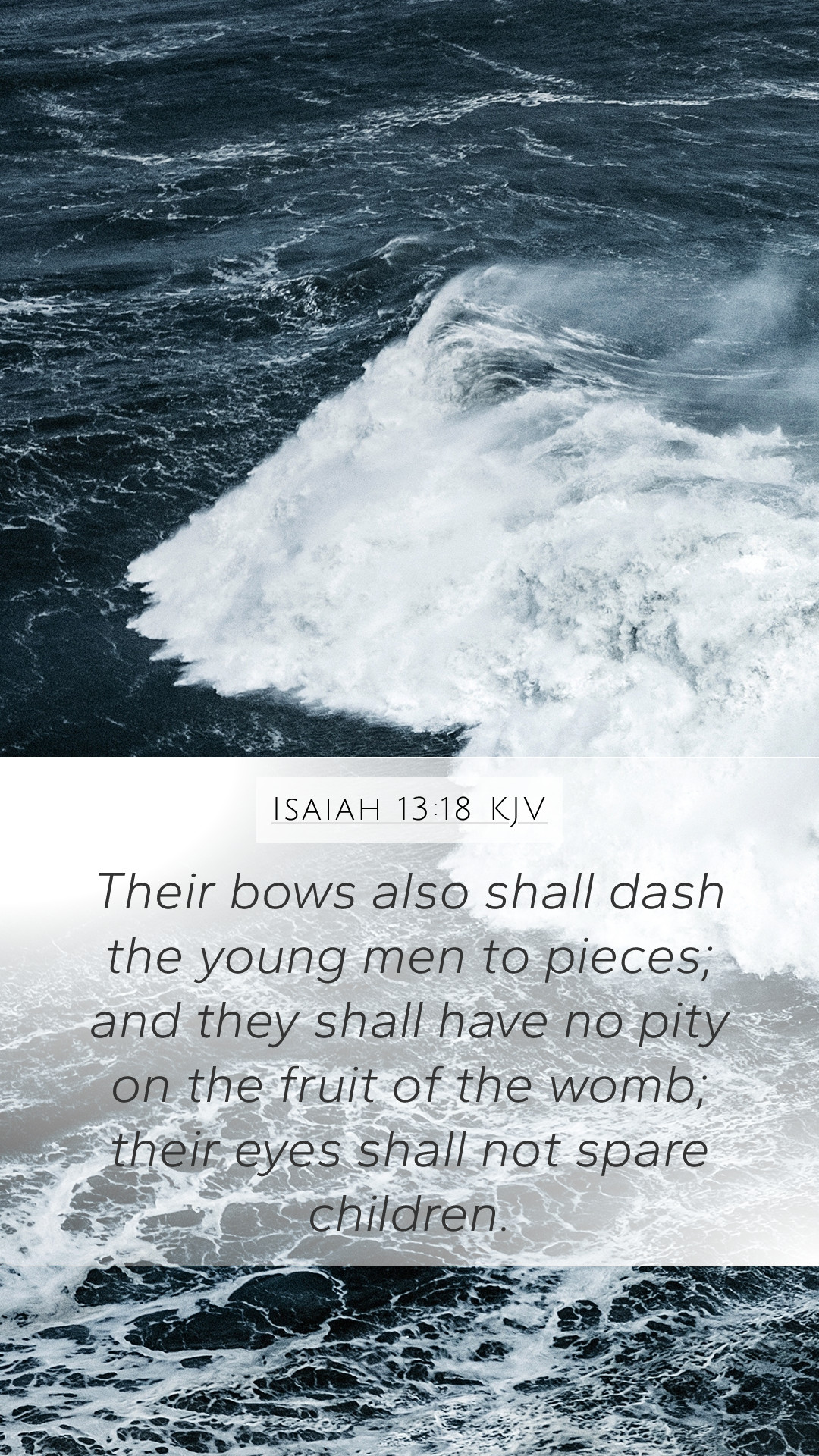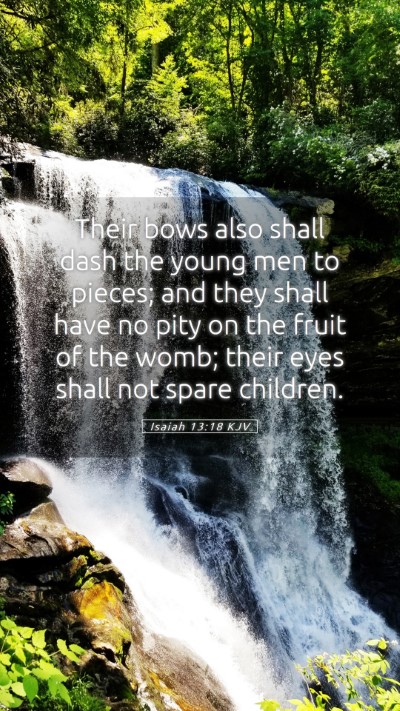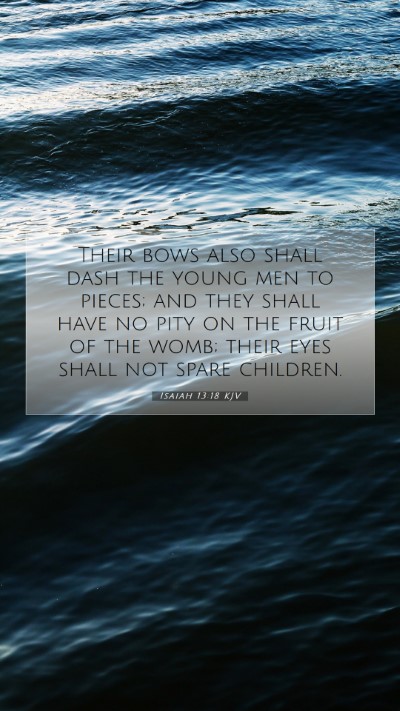Understanding Isaiah 13:18
Isaiah 13:18 states: "Their bows also shall dash the young men to pieces; and they shall have no pity on the fruit of the womb; their eye shall not spare children." This verse paints a stark picture of impending judgment and destruction, particularly emphasizing the ruthless nature of the invaders. Below is a detailed commentary summary from various public domain commentaries for a deeper understanding of this Bible verse.
Contextual Background
Isaiah 13 is a prophecy concerning Babylon and its eventual downfall. The chapter speaks of God's judgment against the proud and mighty city, foretelling the destruction that will be enacted upon it. This was part of the broader prophetic motif of Isaiah, where he holds power accountable to God's righteousness.
Commentary Insights
-
Matthew Henry:
Henry notes that the verse illustrates the severity of divine judgment. The destruction of young men signifies a general ruthlessness and the absence of compassion among the invaders. This also indicates the complete devastation that comes upon nations when they turn from God's ways.
-
Albert Barnes:
Barnes emphasizes that the imagery used reflects the influence of war and its dehumanizing effects. The phrase "no pity" suggests a total lack of empathy that would accompany a siege. The reference to the unborn emphasizes that even the most innocent are not spared in such wrath, underscoring the totality of destruction in God's judgment.
-
Adam Clarke:
Clarke discusses how this verse serves as a warning to nations that wage war without justice or mercy. The absence of care for "the fruit of the womb" indicates a society in violence where moral restraints have been discarded. Such attitudes lead to societal collapse as God's judgment is enacted.
Thematic Analysis
This verse exemplifies themes commonly found in prophetic literature, notably the ideas of judgment, destruction, and the consequences of national sin. It serves as a reminder of the seriousness with which God regards human actions, particularly regarding justice and mercy.
Applications and Reflections
In applying Isaiah 13:18 to contemporary life, one can reflect on the importance of justice and mercy in society. This verse challenges readers to consider the impact of their actions upon the vulnerable and to promote a culture of compassion. It also serves as a sobering reminder of the potential consequences of national pride and indifference toward divine standards.
Related Bible Cross References
- 2 Kings 25:10-12: Describes the destruction of Jerusalem and the devastation faced by its inhabitants.
- Ezekiel 21:12: Reflects on the sword of the Lord being drawn against the people.
- Jeremiah 50:3: Prophecy against Babylon that aligns with the judgment theme of Isaiah.
Conclusion
Isaiah 13:18 serves as a chilling reminder of God's warnings against nations that forsake His justice. The combined insights from Matthew Henry, Albert Barnes, and Adam Clarke elucidate the gravity of divine judgment, while also providing a foundation for understanding broader Scriptural themes. This analysis encourages understanding of Scripture that can guide discussions in Bible study groups, enhance online Bible study, and support Bible study lessons aimed at comprehending complex passages.
SEO Keywords
This commentary on Isaiah 13:18 can enhance the search for Bible verse meanings, Bible verse interpretations, and Bible study insights while providing tools for Biblical exegesis and a more profound understanding of Scripture.
Further, it addresses user intent surrounding questions like: "What does Isaiah 13:18 mean?" and "Explanation of Isaiah 13:18?", making it a valuable resource for worthy discussions about the meaning of Bible verses.


